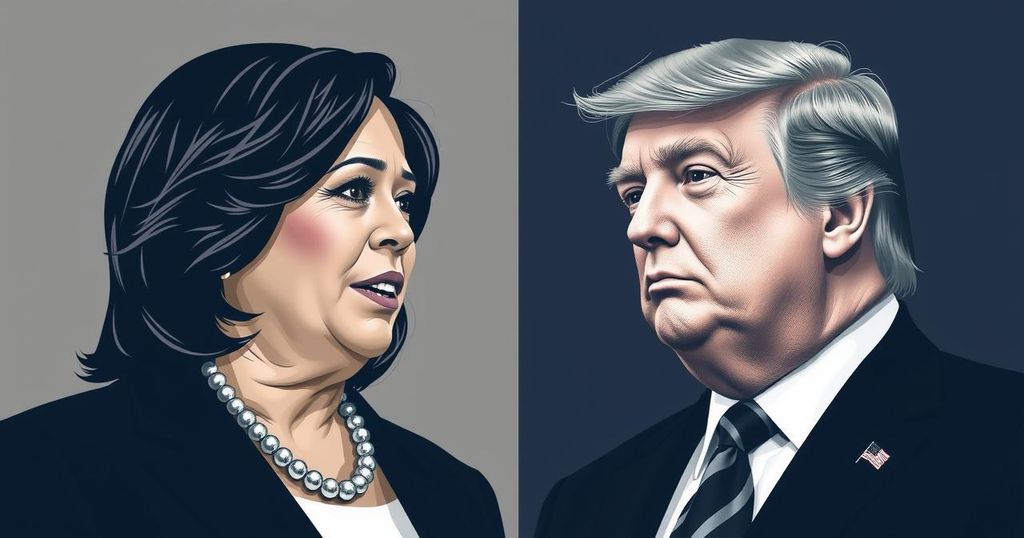International relations experts have noted significant contrasts in foreign policy approaches between Vice President Kamala Harris and former President Donald Trump, with a survey revealing that Harris is overwhelmingly regarded as the more capable leader for managing U.S. foreign policy issues. Anticipated differences encompass key areas such as climate policy, NATO, nuclear cooperation, and military assistance, indicating that the election outcome will have vital implications for U.S. global engagement.
International Relations (IR) scholars have highlighted pronounced distinctions between Vice President Kamala Harris and former President Donald Trump regarding their foreign policy approaches, should either be elected in the upcoming November 5 election. A recent survey by the Teaching, Research, and International Policy Project at William & Mary’s Global Research Institute, backed by the Carnegie Corporation of New York, encompassed responses from 705 IR academics across U.S. institutions, elucidating their expectations concerning each candidate’s foreign policy implications. The experts predict stark contrasts, particularly in how the candidates would address global challenges. Notable areas of divergence include climate policy, NATO membership, nuclear cooperation with Iran, trade relations, and foreign assistance. For example, scholars estimate an 80% likelihood of U.S. withdrawal from the Paris Agreement under a Trump administration, contrasted with just a 4% chance under Harris. Additionally, there is a 38% probability of NATO withdrawal under Trump but only a 1% probability under Harris. When examining nuclear cooperation, the experts project a 35% chance of a new nuclear agreement with Iran under Harris, vis-à-vis only a 7% chance under Trump. Trade policies are anticipated to shift dramatically as well, with a predicted 80% likelihood of increased tariffs under a Trump administration compared to a mere 30% chance under Harris. The experts also foresee significant implications for military aid and foreign assistance, with Harris being viewed as the candidate likely to expand aid more than Trump. Moreover, despite both candidates demonstrating some similarities in military force use predictions, the scholars predominantly perceive Harris as the more competent leader in foreign policy. A staggering 92% of surveyed experts expressed confidence in her ability to manage foreign policy issues, while only 8% believed Trump would be effective. This view aligns with historical assessments from previous elections, underscoring a consistent skepticism regarding Trump’s foreign policy capabilities. Notably, even within the small subset of self-identified Republican scholars, a significant percentage supports Harris’s approach over Trump’s. In conclusion, the consensus among international relations experts indicates that a choice in favor of Kamala Harris on election day would likely lead to a more collaborative and effective U.S. foreign policy, particularly in global cooperation and engagement with critical international institutions.
As foreign policy is often overshadowed during U.S. presidential elections, the upcoming 2024 election has drawn the attention of international relations experts who are keen to assess how either Kamala Harris or Donald Trump would influence U.S. foreign policies. With a history of significant foreign policy implications following presidential elections, the expert responses shed light on anticipated shifts in policy directions and international engagement under the two candidates’ potential administrations.
The survey results illustrate a profound belief among IR experts that Kamala Harris would adopt a markedly more cooperative and effective approach to foreign policy than Donald Trump. The stark differences in their anticipated policies regarding international agreements, military assistance, and overall effectiveness command considerable attention, suggesting that the election outcome on November 5 will be pivotal in shaping the future of U.S. foreign relations.
Original Source: foreignpolicy.com






